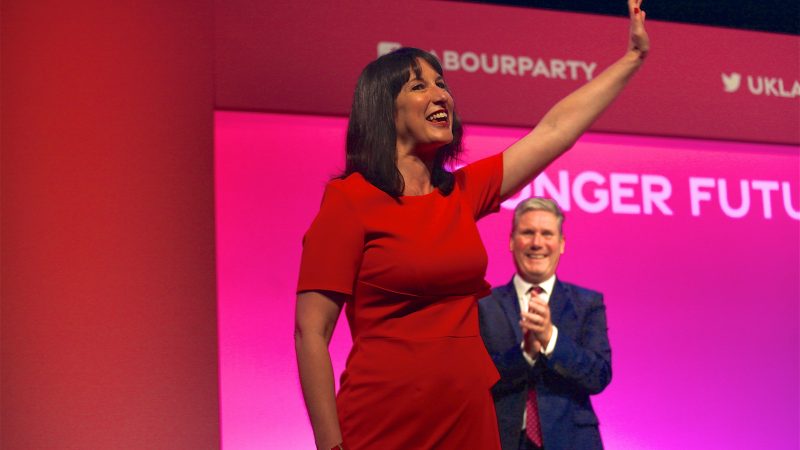
Vladimir Putin’s barbaric invasion of Ukraine has exposed the profound structural weakness in Britain’s economic model. While much of Europe is counting the cost of reliance on Russian energy, London has also been exposed as a laundromat for the dirty money of oligarchs. British families (and Chelsea football fans) will pay a heavy price for a decade of Tory incompetence and indifference towards investors closely connected to hostile regimes.
Make no mistake, this is all part of a bigger pattern. Over the past decade, Britain has become increasingly over-reliant on foreign state-backed actors who do not have our best interests at heart, and who present a threat to our national security and long-term prosperity. The pandemic exposed our dependence on an authoritarian (and some would argue, totalitarian) Chinese state for personal protective equipment and lateral flow tests. But more worryingly still, the Chinese government owns 33% of Hinckley Point nuclear power station and our universities rely too heavily on Chinese students.
This would be less of a problem if President Xi’s regime was not only seeking to crush human rights, freedoms and international law across Xinjiang, Hong Kong and Taiwan, but also seeking to use China’s economic strength to impose its ideals via the crushing of freedom of speech in the West. Just ask Houston Rockets manager Daryl Morley, former Arsenal footballer Mehmit Ozil, or Newcastle university academic Jo Smith-Finley about what happens when you speak out against China. And British universities should be wary not only of losing academic freedoms, but also their intellectual property, with hundreds of UK-based academics recently accused of helping China build weapons of mass destruction.
This is all part of the wider structurally deficient and insecure British economy, which Renaissance and Progressive Britain are seeking to tackle when they bring together Labour frontbenchers and other experts for an online discussion on Monday night. Shadow ministers Chi Onwurah and James Murray will join entrepreneur Paul Lindley, David Offenbach of Labour Business and Community Union’s Kate Dearden to discuss “Long term prosperity vs. a fast buck: how can Labour build a more resilient economy?”, moderated by Stephen Kinnock who chairs Renaissance. Labour members are encouraged to join us on Zoom.
Our conversation will not be limited to reducing reliance on authoritarian states, because British politicians must seek to tackle the broader short-termism in our economy that encourages bosses to turn a blind eye to ethics, security and the interests of employees in exchange for instant investment. Britain has become the European capital for hostile takeovers, with private equity dealmakers announcing bullish bids for UK-listed companies at the fastest pace in more than two decades. Asset strippers targeting firms weakened by the pandemic has been a major problem.
The sacking of 800 British seafarers at P&O ferries – a company acquired by Dubai-based DP World in 2019 – is a prime example of what can go wrong when distant owners have little regard for workers and their families. Wigan Athletic FC’s plight is another. And following the belated sanctions on Roman Abramovich, fans of Saudi-owned Newcastle FC might want to think twice before partying in the streets.
None of this is to downplay the importance of foreign direct investment to our competitive, modern economy – but there is a balance to be struck. Renaissance has argued strongly for Labour to commit to building a more resilient British economy that can stand more firmly on its own two feet. Not only is this necessary for reasons of security and long-term prosperity: our research shows it is hugely popular with many of the voters Labour must win back.
Rachel Reeves has developed an excellent ‘make, buy and sell more‘ in Britain policy, which rightfully recognises the importance of home-grown industry not only for prosperity but increasingly for our national security. It is clear that we need to develop our sovereign capacity, from our energy supply to steelmaking to shipbuilding, and a proper government procurement strategy will be critical.
But for Labour to win an election, this needs to be part of a coherent Labour story about the future of our economy and Britain’s place in the world – or our excellent policies will continue to be less than the sum of their parts. It has been abundantly clear that the Conservatives are weak on this ground, and particularly divided on how to handle China. We have a moral responsibility to lead this debate, and there is a clear political opportunity and necessity to expose Tory shortcomings in order to win the argument. We hope that our event will support this journey – and that LabourList readers will be part of it.




More from LabourList
‘What Batley and Spen taught me about standing up to divisive politics’
‘Security in the 21st century means more than just defence’
‘Better the devil you know’: what Gorton and Denton voters say about by-election